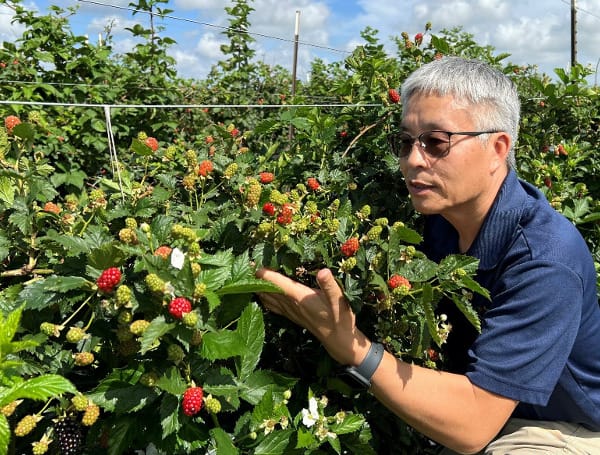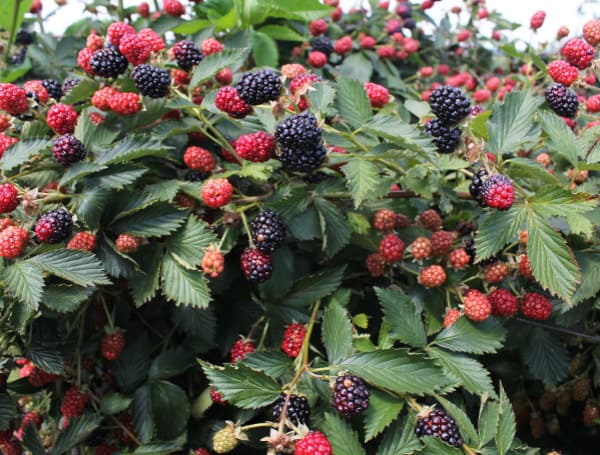Several years ago, farmers asked University of Florida scientists to help them produce blackberries as part of an effort to test whether so-called “alternative” crops could grow in the Sunshine State.
For alternative crops, think hops, blackberries, pomegranates, and others. Researchers aim to supplement producers who grow traditional crops such as citrus, strawberries, and more.
Although UF/IFAS researchers have periodically provided data to farmers about their blackberry experiments, you can now find out a lot more at the first statewide blackberry field day.
If you attend the conference, you can tour the orchard at the Gulf Coast Research and Education Center (GCREC). While there, you can also learn more complete information about growing blackberries in Florida.
UF/IFAS faculty from Gainesville and from the center — along with a scientist from the University of Arkansas — will present updated findings at the meeting, from 9:15 a.m. to 3 p.m., May 25, at GCREC, 14625 County Road 672, Wimauma, Florida. Click here to register. Deadline to register is May 20.
“More growers are trying to grow blackberries or are increasing their acreage for commercial production,” said Zhanao Deng, a UF/IFAS professor of environmental horticulture at GCREC and one of the scientists trying to breed and grow blackberries. “Growers said they want more information on blackberry cultivars, horticultural practices and pest management to produce profitable crops.”

The team has packed several activities and informative talks into the day’s agenda, including:
- The orchard tour.
- A talk by world-renown blackberry breeder John Clark, a distinguished professor of horticulture at the University of Arkansas. Clark developed and released almost all the blackberries grown in Florida.
- Trial data and new findings from nine UF/IFAS researchers and Extension agents.
- Five Florida growers/companies will share their experiences and insights of growing blackberries for commercial production.
To address growers’ needs, UF/IFAS researchers are working on breeding new blackberry cultivars. They’re also researching how fertilizers, diseases, pests and weeds will affect the fruit’s yield and quality.
Extension agents are working with the researchers, bringing the data to existing and potential farmers.
Blackberry breeding is not new to UF/IFAS. In the 1950s, UF/IFAS released two varieties, ‘Flordagrand’ and ‘Oklawaha.’ Both produced high yields of large, attractive berries, but their thorny canes made them unsuitable for commercial production.
UF/IFAS now looks internally and to the University of Arkansas for help growing blackberries in Florida. Scientists such as Clark at the University of Arkansas have maintained an active blackberry breeding program for more than 50 years and have released dozens of new cultivars.
Meanwhile, for the current UF/IFAS blackberry program, Deng credits support from Florida growers and funding from UF/IFAS’ SEEDIT (Support for Emerging Enterprise Development Integration Teams) program. The Florida blackberry team also receives funding from the U.S. Department of Agriculture, the Florida Department of Agriculture Specialty Crop Block Grant Program and UF/IFAS.
“We hope to develop the Florida blackberry industry and help growers produce profitable crops sustainably,” Deng said.
Visit Tampafp.com for Politics, Tampa Area Local News, Sports, and National Headlines. Support journalism by clicking here to our GoFundMe or sign up for our free newsletter by clicking here.
Android Users, Click Here To Download The Free Press App And Never Miss A Story. Follow Us On Facebook Here Or Twitter Here.

